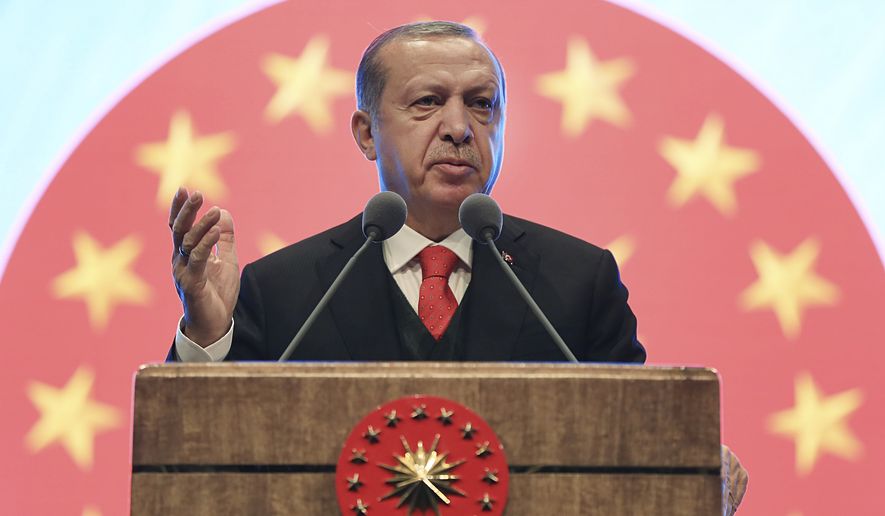OPINION:
Nostalgia is a powerful driver of emotions, whether for an old flame dreaming new dreams or for a new ruler of the remnants of empire remembering what once was, and what in his imagination could be again. But the regime of President Recep Tayyip Erdogan (formerly prime minister) and his AKP Justice and Development Party is more and more authoritarian than romantic.
Romance and remembrance have nothing to do with the pursuit of nuclear power, and its military prospects make Turkey an imposing new threat to the troubled region.
Mr. Erdogan’s dream would recall Turkey’s once-dominant role in the region. The Turkish Empire at its zenith in the early 19th century stretched from the gates of Vienna to Aden to Gibraltar, incorporating most of the eastern Mediterranean. When it collapsed a century ago, during World War I, a truncated nationalist state dedicated to linguistic Turks was left behind, along with considerable racial and ethnic minorities.
Turkey stretches now from the peninsula of Anatolia in Western Asia across the Dardanelles, the straits separating the two continents, with a tiny territory on the Balkan peninsula in Southeast Europe. Kurdish nationalists have challenged the government in Ankara for autonomy in southeastern Syrian border areas where they are dominant.
Mr. Erdogan clearly has big dreams. He made a deal during the summer with Russia’s State Atomic Energy Corporation to build three nuclear power plants. Since 2001 the government has declined to further invest in its dilapidated conventional power system, which is largely dependent on importing natural gas, as the supplier of nation’s electricity. The system is inadequate.
The $20 billion deal with Moscow, in the works since 2010, would build the Akkuyu nuclear power plant — Turkey’s first nuclear plant ever — which is planned to be operational in 2023. Turkey is only the latest country to make a deal with the Russian energy corporation, after Iran, Jordan and Saudi Arabia. This is regarded as not only a Moscow play for power in the Middle East, but a new source of desperately needed revenue. Russia has been hurt by sanctions imposed on Moscow following its invasion of Ukraine.
With the highest rate of a growing demand for energy in the region over the past 15 years, Turkey has long been shopping for nuclear power plants. Before 2015 Iran and Russia were Turkey’s main suppliers of fossil fuels to keep conventional power plants humming. Pressure to abide by the American sanctions against Iran has led Turkey to think of nuclear as a good way to supplement or replace its conventional fossil-fueled plants.
Turkey is looking toward China as well. Beijing has finally ratified the nuclear agreement it reached with Turkey in 2012, a $20 billion deal for the construction of four nuclear power plants. Although there have been no sales, in 2008 Turkey reached an “Agreement for Peaceful Nuclear Cooperation” with the United States.
Turkey says its budding nuclear power program is for civilian purposes only. That, of course, is what they all say. Turkey’s interest in nuclear energy dates from the 1960s, when it studied the feasibility of building a 300- to 400-megawatt nuclear power plant, a full three decades before the rise of Mr. Erdogan and his AKP party. But now the program takes on added significance.
A nuclear power industry could easily move on to weapons development and production, and given Mr. Erdogan’s pretensions for return to imperial Turkish ambitions, that could be the dream he holds in his heart of coldest hearts.




Please read our comment policy before commenting.